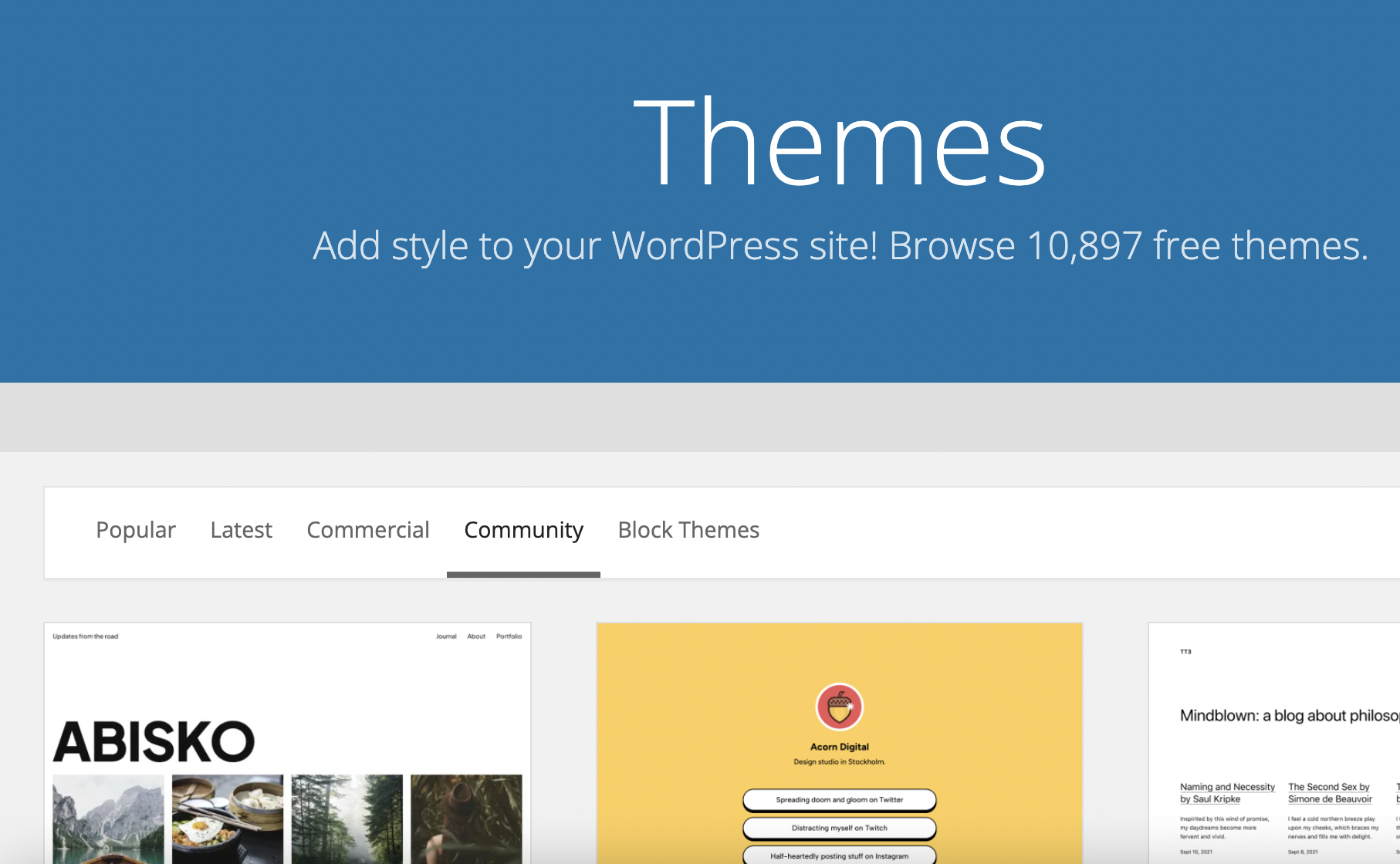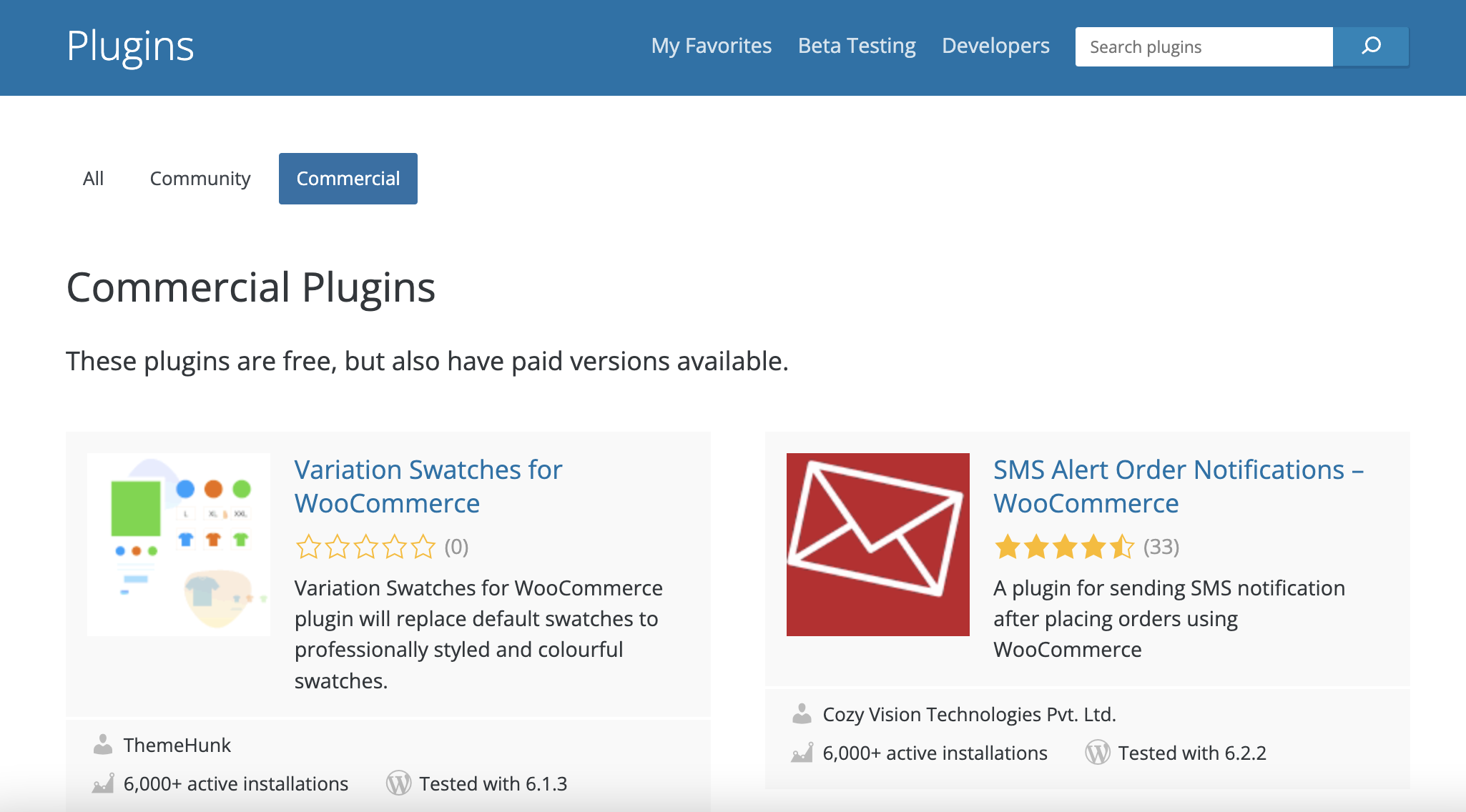During the 2022 State of the Word, Matt Mullenweg announced a plan to add new “Community” and “Commercial” taxonomies for the theme and plugin directories that would help users more quickly ascertain the purpose of the extensions they are considering. Shortly after the announcement, instructions were published for theme and plugin authors to opt into the new taxonomies.
The new filters are now enabled on both the theme and plugin directories, giving users the ability to quickly sort between free community extensions and those with commercial upgrades. Anything with a “pro version” should be designated as Commercial. These usually come with some upsells for more features than are offered in the free version. So far, the number of themes identified as commercial vastly exceed the number of community themes.

In the Plugin directory, extensions designated as free are nearly equal those designated as commercial. Many of the most widely used plugins have already been identified as commercial, including Yoast SEO, Jetpack, Akismet, Elementor, WooCommerce, All-in-One WP Migration, and more. Examples of community plugins include the WordPress Importer, Classic Editor, Classic Widgets, Gutenberg, Performance Lab, and Debug Bar.

In both directories it appears only a small percentage of authors have designated their extensions using the commercial or community taxonomies. At this time, use of the taxonomies is not required. This gave rise to some questions in the comments of the announcement.
“Would a better classification system would be to just have either no label for the majority, and then something closer to ‘includes paid upgrades’ that just implies they also offer additional services on top of their free (and often fully functional) version?” WordPress developer Kevin Batdorf said.
“All plugins are open source regardless of whether they sell something, and that doesn’t make those developers any less passionate about open-source. Nor does it imply non-commercial plugins have any less features, or that the level of dedication to support is any less dedicated.”
Batdorf also asked if use of the taxonomies would be a requirement in the future, because, at the moment, their low usage could give some plugins an advantage under these new classifications.
“Should it also be a requirement?” he said. “Otherwise this also seems like something to be gamed for visibility. Do Community or Commercial (or neither) plugins show higher install growth? I guarantee you people are tracking this already.”
WordPress’ Meta team is seeking feedback on the current implementation. Automattic-sponsored contributor Steve Dufresne said “work is continuously underway to improve the browsing experience and refine the visual aspects of the Theme and Plugin Directory as part of the site redesign.” The new filters will be incorporated into the upcoming redesign changes that have been slowly rolling out across WordPress.org.
These filters will also be making their way into the admin theme and plugin browsers, so users can access them from wherever they search for extensions. In the meantime, users and theme and plugin developers can leave feedback via Meta Trac on the specific tickets outlined in the announcement, as the team continues to iterate on the project.
